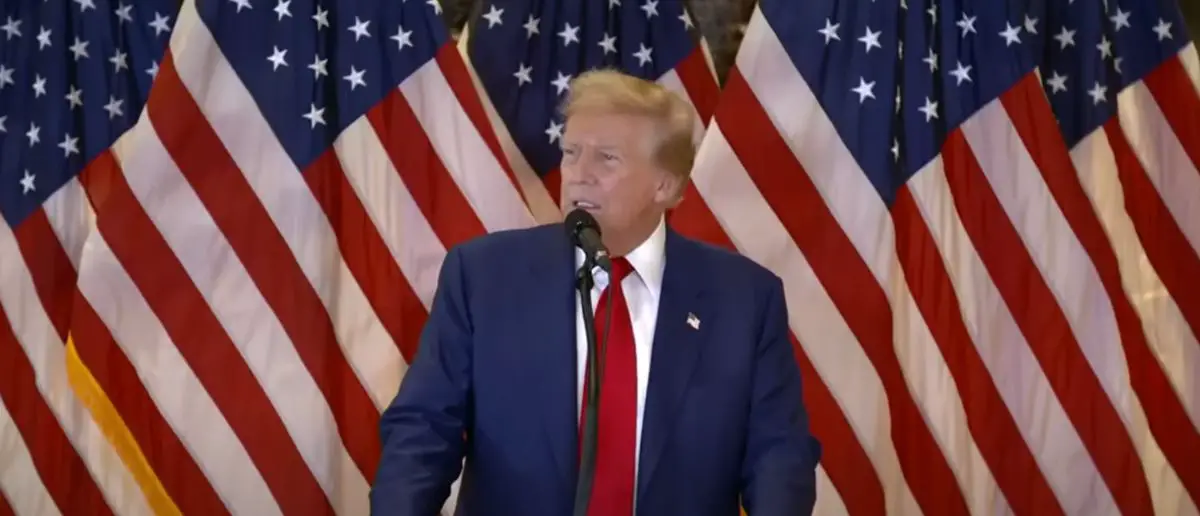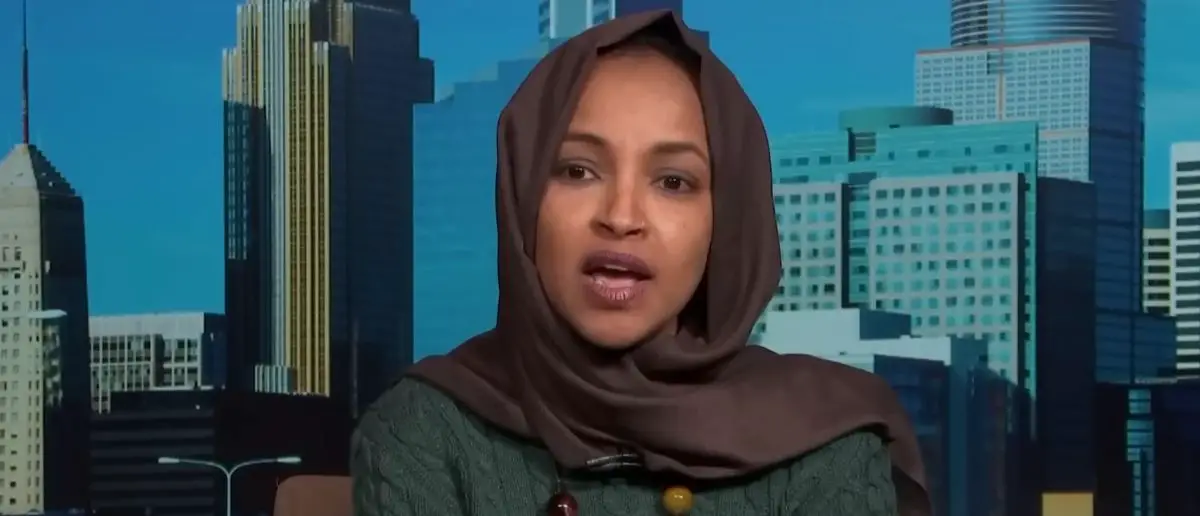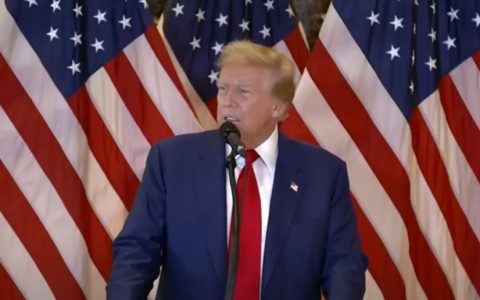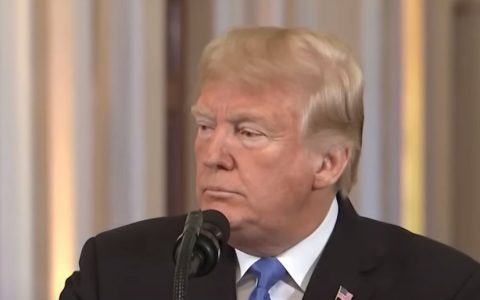
The Biden administration was a disgrace in the eyes of many Americans. But the half of it hasn’t even been brought to light.
And President Trump’s close ally has uncovered crimes that Joe Biden was hoping no one would unearth.
Biden’s Turning Federal Power Against Law-Abiding Americans Revealed By Trump’s DNI
The Biden administration, in a move that raised alarm among civil liberties advocates, authorized federal law enforcement in 2021 to target Americans for “concerning non-criminal behavior” under the guise of combating domestic terrorism. This directive, revealed through newly declassified documents, casts a wide net over citizens, particularly those in the military, firearm owners, or individuals accused of spreading so-called “xenophobic” disinformation. The policy signals a troubling shift, where the federal government appears to prioritize ideological conformity over constitutional protections.
The unredacted “Strategic Implementation Plan for Countering Domestic Terrorism,” released by Director of National Intelligence Tulsi Gabbard, lays bare the sweeping scope of this mandate. Issued in June 2021 by the National Security Council, the memo empowered the FBI and Justice Department to monitor groups as diverse as conservative Catholics and parents protesting school board policies. It also justified Homeland Security’s forays into censorship and debanking, targeting Americans deemed potential threats by the administration’s subjective standards.
This approach marks a stark departure from long-standing FBI protocols, which historically required a clear “predicate” for investigations—an articulable factual basis indicating a crime or national security threat. The Biden-era memo, however, lowered this threshold to mere “concerning” behavior, a vague criterion that invites abuse. Legal experts argue this shift risks eroding civil liberties, enabling the government to weaponize its authority against citizens who hold dissenting views on issues like gun rights or COVID-19 policies.
Rep. Andy Biggs, R-Ariz., a key figure in exposing FBI misconduct during the Russia collusion probe, has sharply criticized the memo. “It doesn’t have to be criminal, for sure. But it doesn’t have to be heterodox,” Biggs said. “It just has to be something that some agent, or some local agent, says, ‘Oh, we got a beef about this. We’re going to check it out.'” His remarks point to a dangerous overreach, where federal agents are given carte blanche to spy on Americans without evidence of wrongdoing.
Biggs went further, accusing the administration of violating constitutional protections. “It’s spying on Americans, violating the Fourth Amendment,” he said. He urged new FBI Director Kash Patel to dismantle this guidance, insisting that agents adhering to it without a proper predicate should face termination. The congressman’s call for reform underscores the urgency of addressing what many see as a direct assault on privacy and free speech.
The memo’s focus on “non-criminal behavior” has drawn particular scrutiny from experts like Dr. John Lott, president of the Crime Prevention Research Center. “Well, back in June 2021 the Biden administration put out its plan for dealing with domestic terrorists. The one that they put out at that time talked about how they were going after criminal activity,” Lott said. “What Tulsi Gabbard declassified was the rest of the document that was there, and what was shocking to me is that the types of tools and responses that they have been making for people who are engaged in some type of violence actually applied to non-violent individuals, non-criminal activity that was there.”
The administration’s directives also reveal a troubling fixation on symbols and phrases tied to conservative values. The memo instructs agencies to flag “domestic terrorism iconography, symbology, and phraseology,” including symbols like the Gadsden Flag and the Betsy Ross flag—both rooted in American revolutionary history. An earlier leaked FBI memo similarly identified pro-Second Amendment messages as potential indicators of extremism, raising questions about the government’s impartiality.
Lott has pointed out the apparent bias in these criteria. “[When] you go and you look at something like the symbolism that they’re looking for, right, the 2A, somebody writing something like the right to keep and bear arms, the Betsy Ross flag, the Gadsden flag. Everything that you can find there seems to be something that would be associated with conservatives,” he said. “I don’t see anything in there that’s associated with people on the left.” The absence of equivalent scrutiny for left-leaning symbols, such as Black Lives Matter imagery, suggests a targeted approach that disproportionately impacts one ideological group.
Democrat’s At The Source Of These Federal Power Grabs?
The memo’s alignment with Democratic Party priorities further fuels concerns about politicization. It calls for aggressive gun control measures, including bans on assault weapons and high-capacity magazines, restrictions on “ghost guns,” and the promotion of red-flag laws. These policies, framed as efforts to curb domestic terrorism, overlap closely with the administration’s legislative agenda, blurring the line between national security and partisan objectives.
Beyond firearms, the memo emphasizes combating “xenophobia” and “disinformation,” terms often wielded by the administration to silence critics. It directs law enforcement to “mitigate xenophobia and bias, including by advancing inclusion in the nation’s COVID-19 response,” with the White House Domestic Policy Council taking the lead. The inclusion of such ideologically charged language in a national security directive raises fears that the government is using its authority to enforce a particular worldview.
The administration’s focus on disinformation as a form of domestic terrorism is particularly alarming. The memo tasks federal agencies with countering “terrorist content online” and improving the government’s understanding of how disinformation fuels extremism. This directive, coupled with calls for collaboration with foreign governments, suggests a globalized approach to policing speech that could infringe on First Amendment rights.
The State Department’s role in these efforts has drawn scrutiny, particularly its now-defunct Global Engagement Center, which funded organizations that labeled conservative media as “foreign agents.” Such actions point to a pattern of bias within federal agencies, where conservative voices are disproportionately targeted under the pretext of national security. The memo’s call for “digital literacy” programs to combat disinformation further raises concerns about government overreach into private thought.
Historical examples of FBI misconduct amplify these worries. For years, the bureau misled the public about the 2017 shooting of Republican congressmen by a Bernie Sanders supporter, initially claiming the attacker sought “suicide by cop” despite evidence of political motivation. This incident, quietly corrected in 2021, illustrates a tendency to downplay left-wing extremism while amplifying threats from the right.
The Biden administration’s policies gained traction in the wake of the January 6 Capitol riot, which provided a high-profile justification for expanding domestic extremism investigations. However, FBI whistleblowers have revealed that these strategies were misapplied, targeting groups like pro-life activists and parents at school board meetings. Such missteps suggest a federal bureaucracy more concerned with ideological opponents than genuine threats.
One whistleblower, FBI agent Garrett O’Boyle, recounted being tasked with investigating pro-life groups for threats against the Supreme Court following the overturning of Roe v. Wade. “I was like, why would this person know about those threats? He’s pro-life. Like, he’s not the one going and threatening the Supreme Court Justices,” O’Boyle said. His testimony exposes a disconnect between the administration’s directives and on-the-ground realities, where law-abiding citizens are swept into the dragnet.
The infamous “Catholic Memo,” which outlined plans to infiltrate conservative Catholic churches as potential hubs of extremism, further illustrates this overreach. Another whistleblower provided evidence that FBI counterterrorism resources were used to investigate parents protesting school policies, a move that critics argue weaponizes federal power against ordinary Americans exercising their rights.
The memo’s call to monitor active-duty service members for terrorism recruitment adds another layer of concern. By casting suspicion on those who serve the nation, the administration risks alienating a group already under strain. This directive, combined with the focus on gun owners and traditionalists, creates an atmosphere of distrust between the government and its citizens.
The administration’s collaboration with foreign governments to gather intelligence on domestic extremism raises additional red flags. Tasking agencies like the FBI, CIA, and State Department to prioritize foreign-sourced information on U.S. citizens could lead to unchecked surveillance, bypassing domestic legal safeguards. Such partnerships threaten to erode the sovereignty of American civil liberties.
Stay tuned to the DC Daily Journal.





